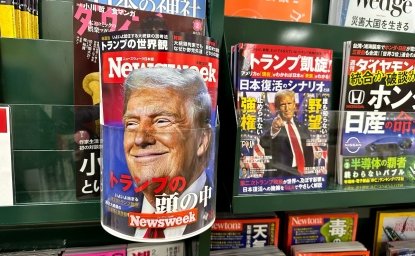Only months ago, American officials were still referring to Yemen’s negotiated transition from autocracy to an elected president as a model for post-revolutionary Arab states.
Now, days of factional gun battles in the Yemeni capital have left the president a puppet figure confined to his residence. The country appears to be at risk of fragmenting in ways that could provide greater opportunities both for Iran and for Al Qaeda, whose Yemeni branch claimed responsibility for the first Paris terrorist attack this month.
The latest Yemeni crisis raises the prospect of yet another Arab country where the United States faces rising dangers but has no strong partners amid a landscape of sectarian violence. Although the Houthi rebels who now effectively control the state are at war with Al Qaeda, they are also allied with Iran and with Yemen’s meddlesome former president, Ali Abdullah Saleh.
The Houthis’ rise to a dominant position may set off local conflicts in ways that would give more breathing room to Al Qaeda’s local branch, which has repeatedly struck at the United States. Yemen’s elected president, Abdu Rabbu Mansour Hadi, is a stalwart American ally but has almost no domestic support.
“The Yemeni state has always been weak, but now there’s a real danger of economic meltdown, and of the kind of fragmentation that could ultimately make Yemen almost ungovernable,” said April Alley, an analyst with the International Crisis Group, a nonprofit organization that works to resolve conflicts.
The Houthi takeover — which began in September and was reinforced in recent days — has deepened sectarian and regional divisions in a desperately poor country that has long been a sanctuary for jihadists. And though the latest round of fighting appeared to end Wednesday when Mr. Hadi conceded to the Houthis’ political demands, the underlying crisis will continue to fester, analysts say.
The deal announced Wednesday addressed a number of the Houthis’ grievances, including a lack of representation in government bodies and complaints about provisions in a draft constitution. In return, the Houthis agreed to withdraw fighters from the presidential palace and other parts of Sana and to release an aide to Mr. Hadi who was kidnapped by Houthi gunmen on Saturday. But there was little doubt that the Houthis, who have repeatedly threatened in recent months to use force to win political concessions, remain in control.
The Houthis’ public humiliation of Mr. Hadi — a southerner — prompted southern rebels to close the country’s chief port in Aden and shut the border between the north and south earlier this week, raising the specter of actual secession. Armed tribesmen have cut off oil exports in three southern provinces. And Saudi Arabia, which sees the Houthis as a proxy of its regional rival, Iran, has shut off almost all aid to the Yemeni government, leaving it virtually penniless and unable to pay salaries.
The Saudis, who have long been Yemen’s economic lifeline, pumping in more than $4 billion since 2012, say they would rather allow the Houthis to take the blame for the approaching economic collapse than provide aid to an Iranian client, according to a Yemeni official who spoke on the condition of anonymity, citing diplomatic protocol. Other Persian Gulf countries are likely to follow the Saudi lead.
In another ominous sign, the Houthis appear to be gearing up for a major battle with their Sunni Islamist rivals in Marib Province, to the east of the capital, where much of Yemen’s oil infrastructure is. That could prove devastating to Yemen’s government and economy, which is deeply dependent on oil.
It could also exacerbate sectarian tensions in a country that was almost entirely free of them until recently. The Houthis belong to the Zaydi branch of Shiite Islam, and Saudi Arabia — whose leaders see all Shiites as heretics — has been providing aid to Sunni tribes in Marib, diplomats say, fueling another proxy war between Saudi Arabia and Iran. Some of the tribes refer to the Houthis as an occupying force, undermining their claim to represent a broad-based national movement.
In Washington, military and intelligence officials expressed grave concerns on Wednesday about the violence in Sana and the impact any further deterioration could have on one of the Obama administration’s staunchest counterterrorism partners. Michael G. Vickers, the Pentagon’s top intelligence policy official, said analysts were still trying to determine the Houthis’ ultimate goal.
The meteoric rise of the Houthis has drawn global attention to an insurgent group that was almost unknown outside Yemen a decade ago, and whose agenda is still opaque to many people both inside and outside the country. Their leader, a charismatic guerrilla fighter in his early 30s named Abdel Malik al-Houthi, inherited his mantle from his father and his older brother Hussein, who founded the movement in the 1990s and was killed in the first of a series of wars against the Yemeni state that ended in 2010. Mr. Houthi’s speeches focus on fighting corruption and fulfilling the agreements reached in a series of “national dialogue” sessions that ended last year. Those demands have helped bolster public support for the Houthis — which remains strong — in a country where corruption has gutted the state and appears to have worsened since Mr. Hadi became president after the uprising of 2011.
But the Houthis are often seen through the lens of their identity as revivalist Zaydis, a group that was dominant in Yemen’s government for centuries and was then marginalized in recent decades. They modeled themselves in important ways on Hezbollah, the Lebanese Shiite militia, and though their ideology and leadership are distinct and unmistakably Yemeni, they are allied with Iran, which has provided them with weapons, training, and money, especially since 2011.
The Houthis’ continuing and bloody battle with Al Qaeda has led some in the West to see them as potential partners, despite the trademark Houthi slogan, “God is great; death to America; death to Israel.”
Under Yemen’s former president, Mr. Saleh, “the formula was to milk the U.S.A. for support in the fight against Al Qaeda, which was a recipe for more drones and more radicalization,” said Bernard Haykel, a professor at Princeton who has written extensively on Yemen. “The Houthis actually want to fight Al Qaeda, which could be more effective.”
But the Houthis are also allied with Mr. Saleh, who remains a powerful figure in Yemen and is bent on revenge on those who engineered his ouster during the turmoil of 2011. If the Houthis succeed in consolidating power, many in Yemen expect a bloody power struggle between them and Mr. Saleh’s loyalists in the military and the tribes.
The Houthis long benefited from a reputation for honesty and discipline, much like their mentor group, Hezbollah. But the arrogant behavior of the Houthi gunmen who descended on Sana in September, bullying government ministers and their ideological opponents, has spent some of that good will. The conflict between the Houthis and their mostly Sunni rivals has led some Yemenis to give up on the state.
In Taiz, Yemen’s third-largest city, the local governor has taken over the military and intelligence quarters and is effectively governing a city-state. In southern Yemen, which was a separate country from 1970 until 1990 and fought a brief civil war against the north in 1994, many have similarly seized on the Houthi ascendancy as an opportunity to break away. Those aspirations have fueled fears of a wider breakdown that could benefit Al Qaeda, which ejected government officials across a wide stretch of the south in mid-2011 and declared an Islamic emirate that lasted about a year.
The opinions expressed here are solely those of the author.
This article was originally published in The New York Times.





